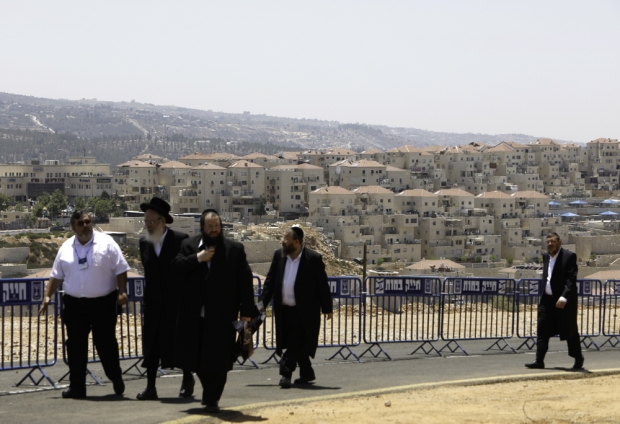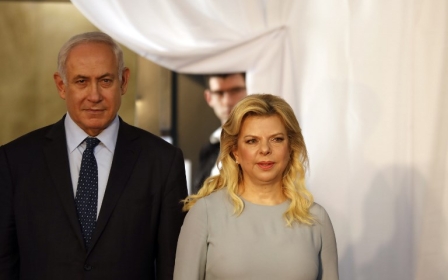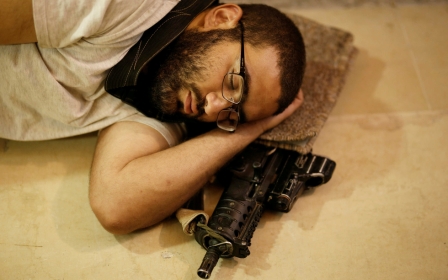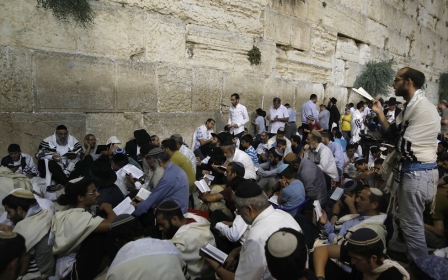Netanyahu boasts of record on Israeli illegal settlements
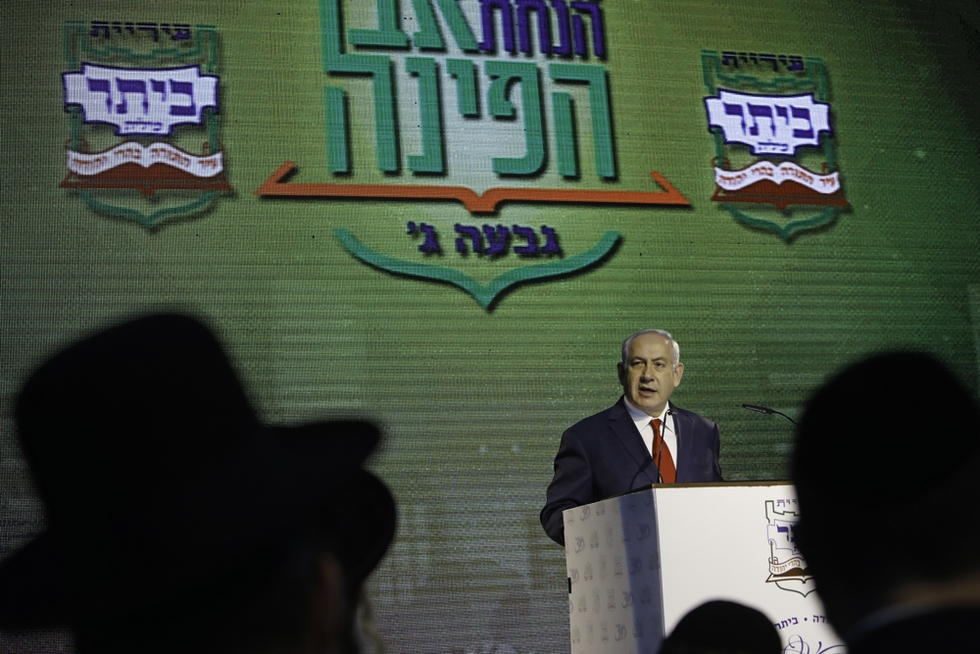
Benjamin Netanyahu has boasted his government has done more than any to boost illegal Jewish settlements, as he laid the foundation stone for a new district in the 50,000-population illegal West Bank settlement of Beitar Illit.
In a speech on Thursday, the Israeli prime minister said: "No other government has done as much for settlement in the land of Israel as the government which I lead."
Settlements in the occupied West Bank and Israeli-annexed east Jerusalem are illegal under international law and are seen as one of the greatest obstacles to peace between Israel and the Palestinians.
No other government has done as much for settlement in the land of Israel as the government which I lead
- Benjamin Netanyahu
Netanyahu has said he still supports a two-state solution, but peace advocates say his actions show otherwise. His right-wing coalition government leans heavily on the support of settlement advocates.
Israel occupied the Palestinian territories in 1967 in a move never recognised by the international community.
More than 600,000 Israelis now live in settlements alongside nearly three million Palestinians in the West Bank and east Jerusalem.
In December, the United Nations Security Council declared all such settlements to be illegal after outgoing US president Barack Obama decided not to veto its resolution.
Since US President Donald Trump came to power, however, Washington has remained largely quiet as Israel has announced thousands of new settlement homes.
The new development of Beitar Illit will have more than 1,000 homes and is one of 5 settlements contained in a bill that seeks to expand Jerusalem municipal boundaries, effectively annexing them to Israel.
The “Greater Jerusalem Bill” would add the settlements of Gush Etzion, Efrat, Betar Illit, Givat Ze’ev and Ma’aleh Adumim to Jerusalem’s municipal boundaries.
Prime Minister Netanyahu has announced his support for the bill that would also turn Arab villages in the area that are outside the West Bank security barrier into an independent municipality of Greater Jerusalem.
A senior Palestinian official on Tuesday said the White House's silence over settlement growth and its failure to support the two-state solution encouraged "apartheid" Israeli policies.
The criticism by the secretary general of the Palestine Liberation Organisation, Saeb Erekat, came after the Palestinians had previously been careful not to antagonise the new US leader since his inauguration in January.
The Jerusalem Post daily said it was the first time since the 2009 start of his current run in office that Netanyahu had taken part in a settlement stone-laying ceremony.
"We are working energetically for settlement in every part of the land," he said Wednesday.
He also pledged to act speedily to construct new homes for the roughly 40 families evicted from the wildcat outpost of Amona in February after Israel's Supreme Court ruled their homes had been built illegally on private Palestinian land.
The new development, named Amichai, will be the first government-sanctioned Jewish settlement built in the Palestinian territories in some 25 years.
Construction in settlements in the West Bank increased by 70 percent in the 12 months to March, according to data from Israel's central bureau of statistics, which do not include Israeli-annexed east Jerusalem.
New MEE newsletter: Jerusalem Dispatch
Sign up to get the latest insights and analysis on Israel-Palestine, alongside Turkey Unpacked and other MEE newsletters
Middle East Eye delivers independent and unrivalled coverage and analysis of the Middle East, North Africa and beyond. To learn more about republishing this content and the associated fees, please fill out this form. More about MEE can be found here.


